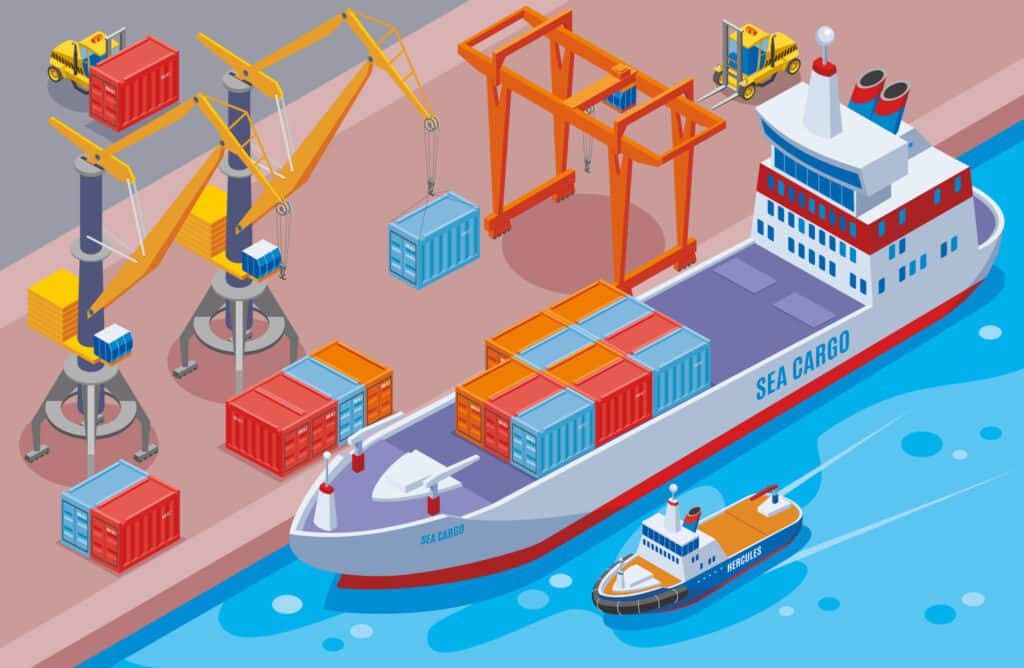
Shipping Industry
Digital disruption has impacted the shipping industry in recent years, and this trend is only anticipated to grow. Digital technology integration in shipping operations has changed the sector and brought a host of advantages, such as higher productivity, cost savings, and improved customer satisfaction. In this post, we’ll look at how the shipping sector has been affected by digital disruption and talk about what’s coming next.
The Impact of Digital Technology on Shipping Work
The shipping industry has been greatly influenced by advancements in digital technology, transforming the way goods are transported worldwide. With the incorporation of digital technology, shipping businesses can now automate many of their operations, resulting in increased productivity and reduced costs. Automated cargo tracking and monitoring systems, for example, have become widely adopted, thanks to their ability to minimize manual tracking, and provide real-time optimization of shipping operations. If you need to transport goods, consider using a service like https://www.shiply.com/us/truck-loads, which takes advantage of the latest digital technologies to provide efficient and cost-effective shipping work.
Customer experience is another area where digital technology has had a significant impact. Customers can now follow their shipments in real-time and have better visibility into the status of their purchases thanks to the usage of digital platforms. Customer satisfaction and loyalty have risen as a result of this greater visibility.
Digital Disruption in Shipping Operations
Digital disruption in the maritime sector is already happening and is likely to continue. Many things, such as technological advancements, shifting consumer expectations, and rising competition, are fueling this disruption. Therefore, to be competitive, shipping businesses must adjust to these developments.
The supply chain and logistics industries are among those where digital disruption is most noticeable. By utilizing digital platforms like blockchain and big data analytics, shipping businesses have optimized their supply chain management, which has increased productivity and reduced costs. Blockchain technology, for instance, can be used to trace goods and transactions, lowering the possibility of fraud and mistakes.
Challenges Associated with Digital Disruption
While digital disruption offers the shipping industry numerous opportunities, it also poses difficulties. The demand for qualified people to manage and maintain digital systems is one of the biggest problems. In addition, workers with particular capabilities, such as data analytics and cybersecurity, are needed to support the maritime industry’s digital transition.
The requirement for sizable investment presents another difficulty related to digital disruption. Incorporating digital technology into shipping operations requires a significant investment in new infrastructure and systems. In order to stay competitive, shipping businesses must be prepared to invest in these technologies.
The Future of the Shipping Industry
Digital technology is anticipated to influence the direction of shipping work. It is expected that incorporating digital technology will continue to increase productivity, lower expenses, and improve customer experience. To respond to these developments, the sector must make appropriate investments in infrastructure and training.
The usage of autonomous vessels is one aspect of the maritime industry’s future that is particularly interesting. The creation of autonomous ships has the potential to completely transform the maritime sector by cutting costs and increasing productivity.
In conclusion, the maritime sector is being disrupted by digital technology, which offers both benefits and difficulties. The sector has transformed due to the adoption of digital technology in shipping work, which has increased productivity, decreased costs, and improved customer satisfaction. However, the sector must be ready to adapt to these changes and must make the appropriate investments in training and infrastructure to remain aggressive. Shipping firms must be prepared to invest in cutting-edge technology and modify their business practices to suit shifting client expectations as the sector develops.





